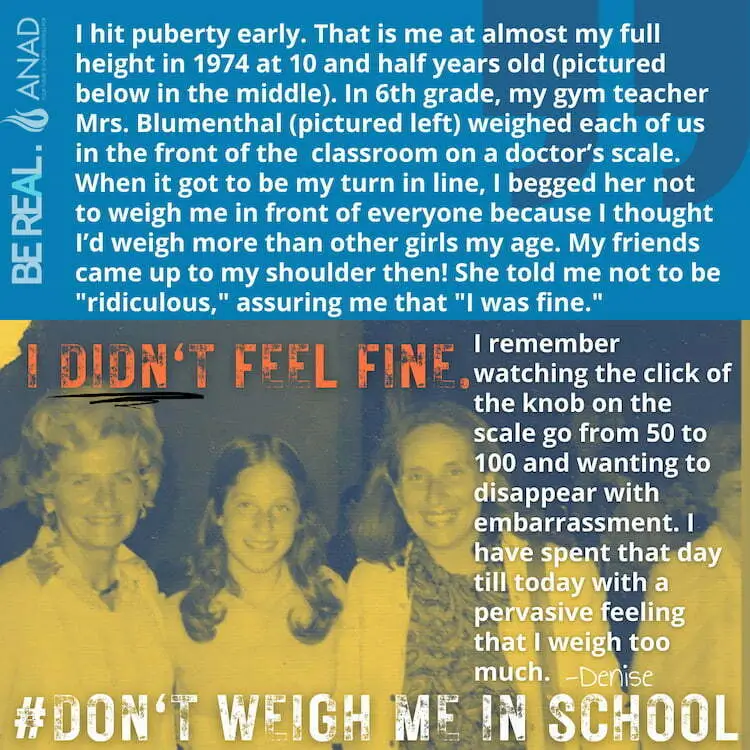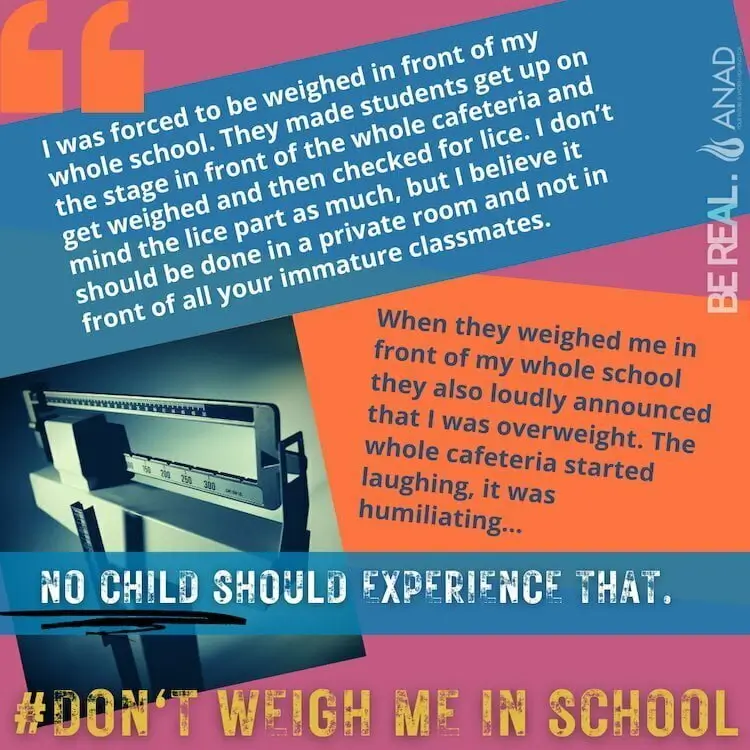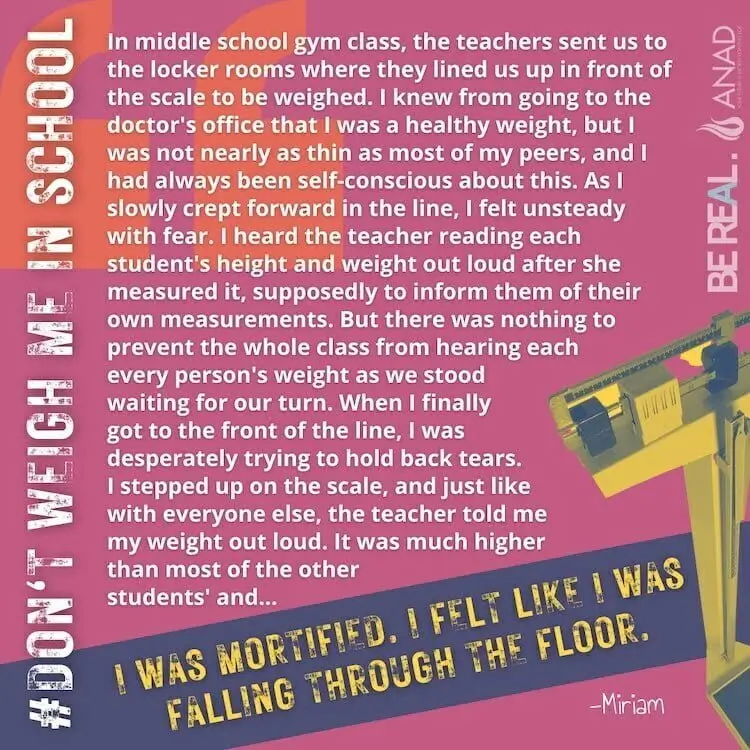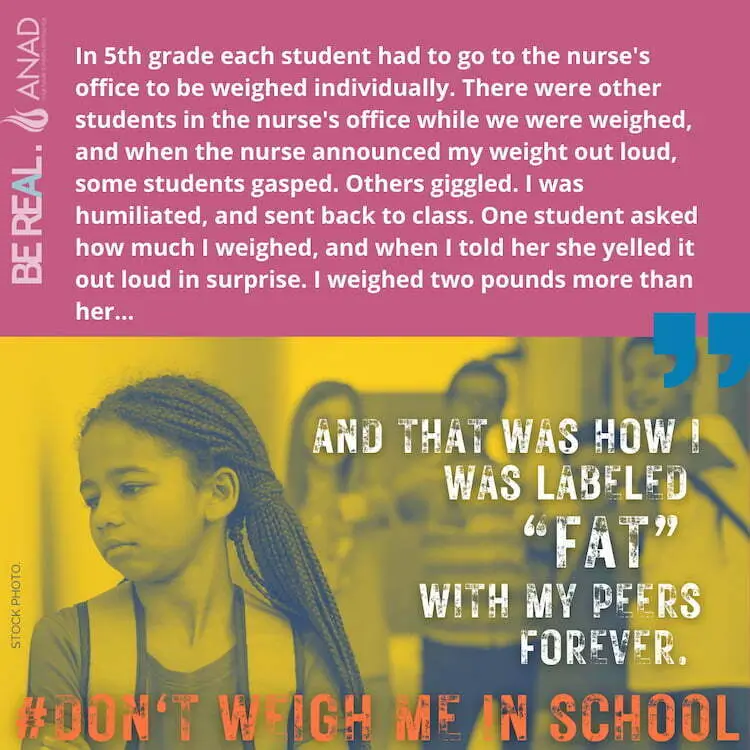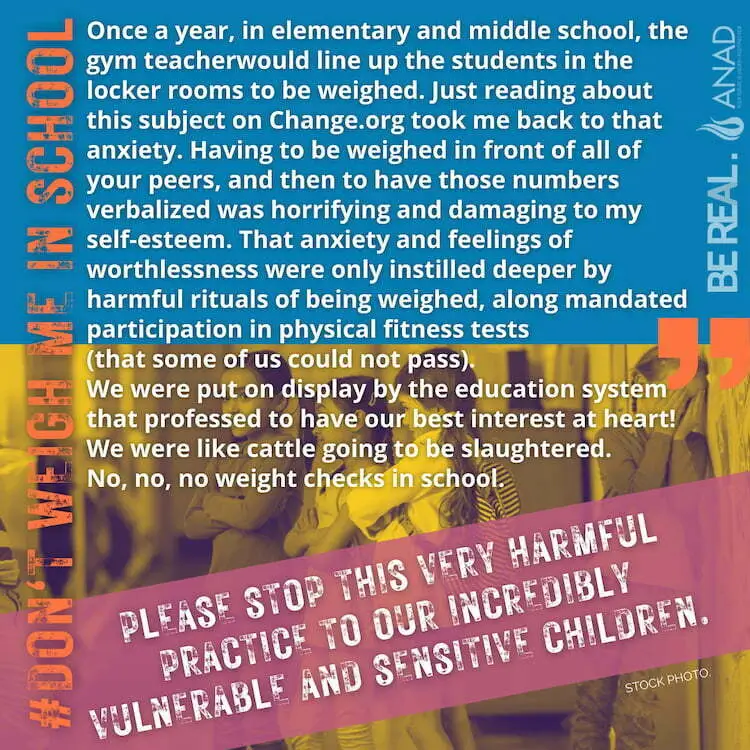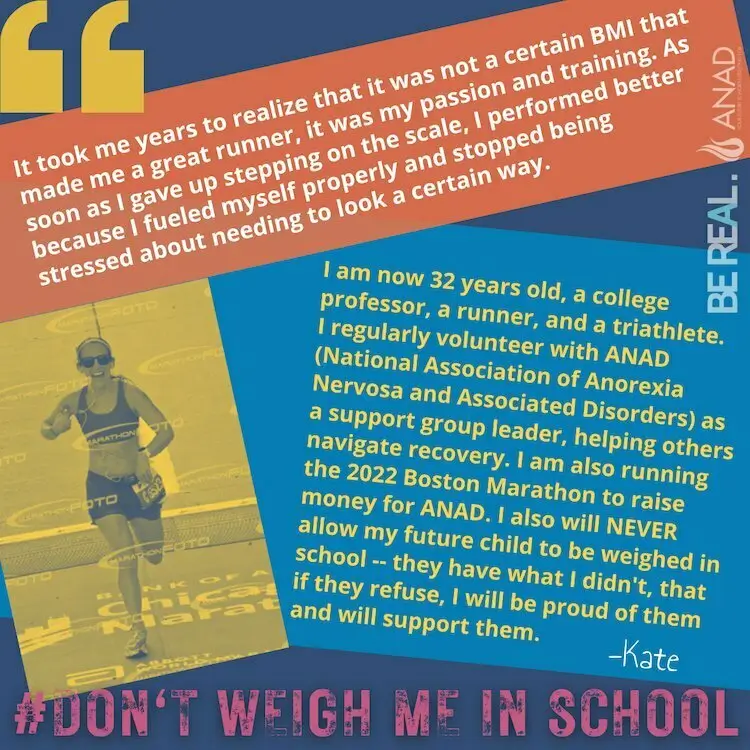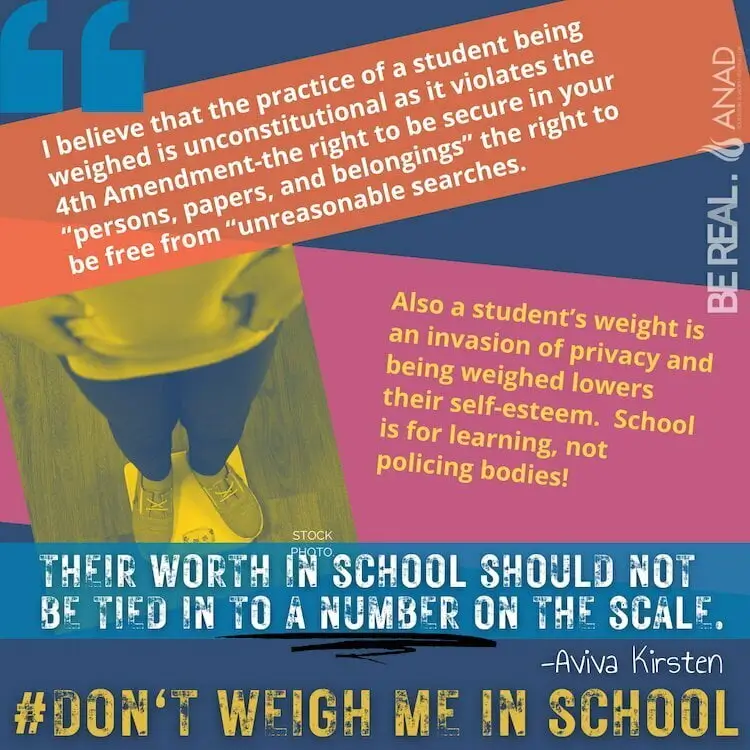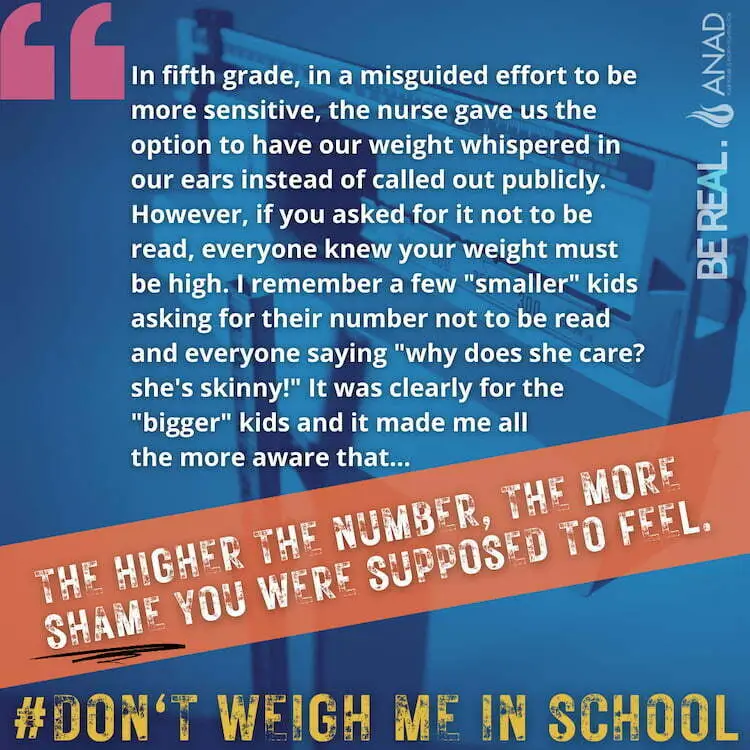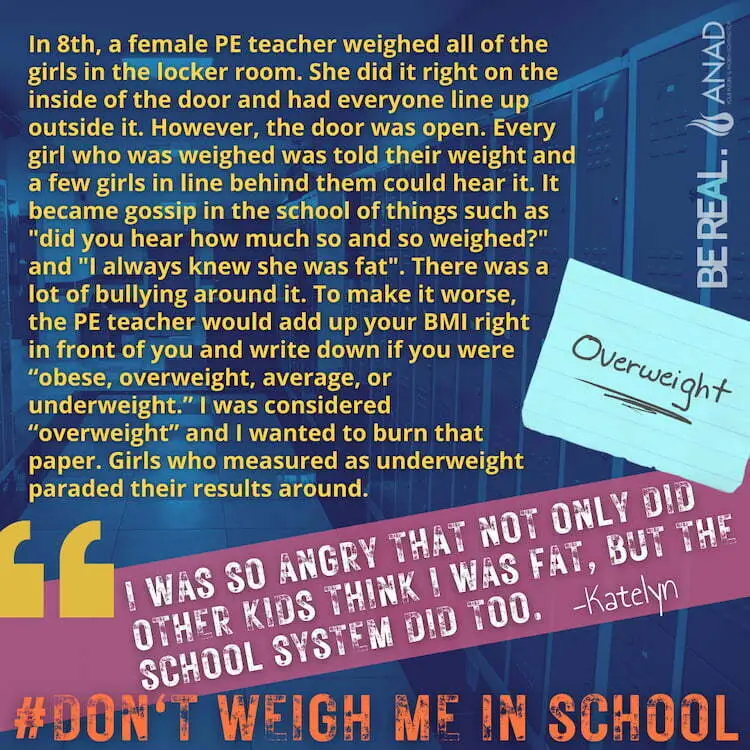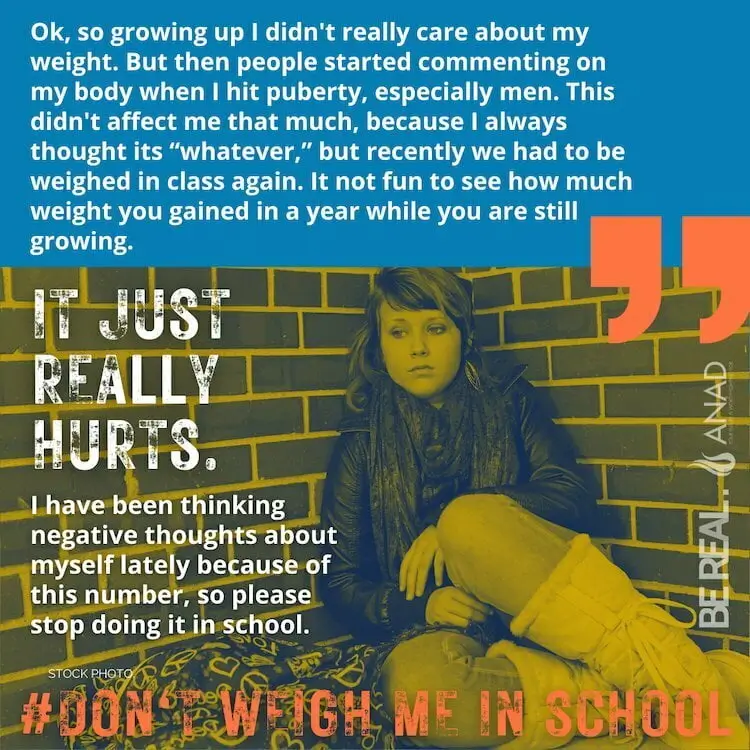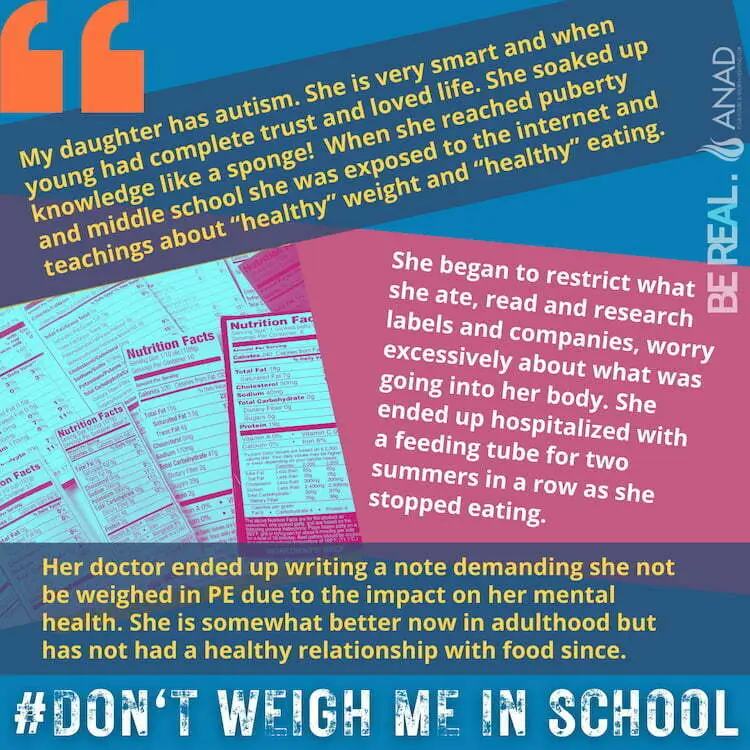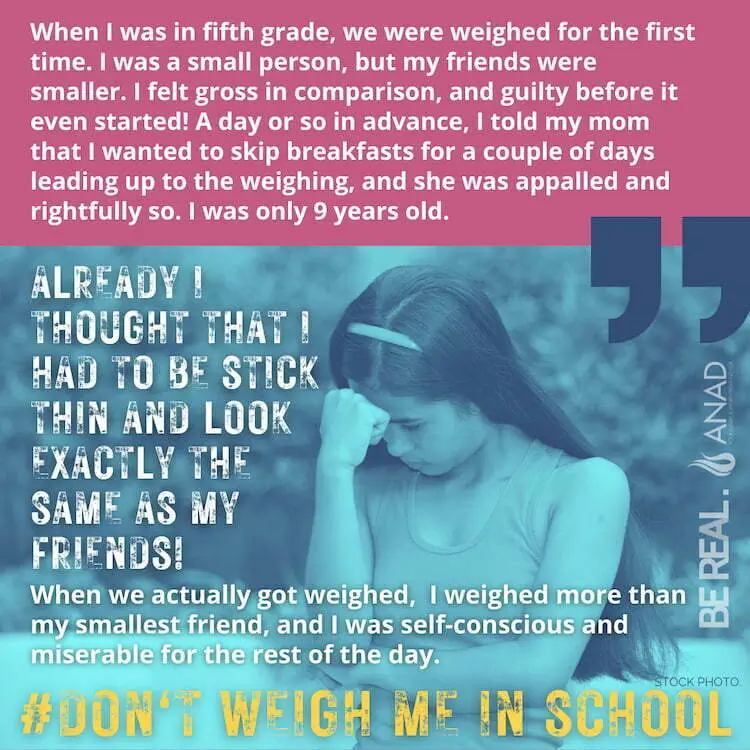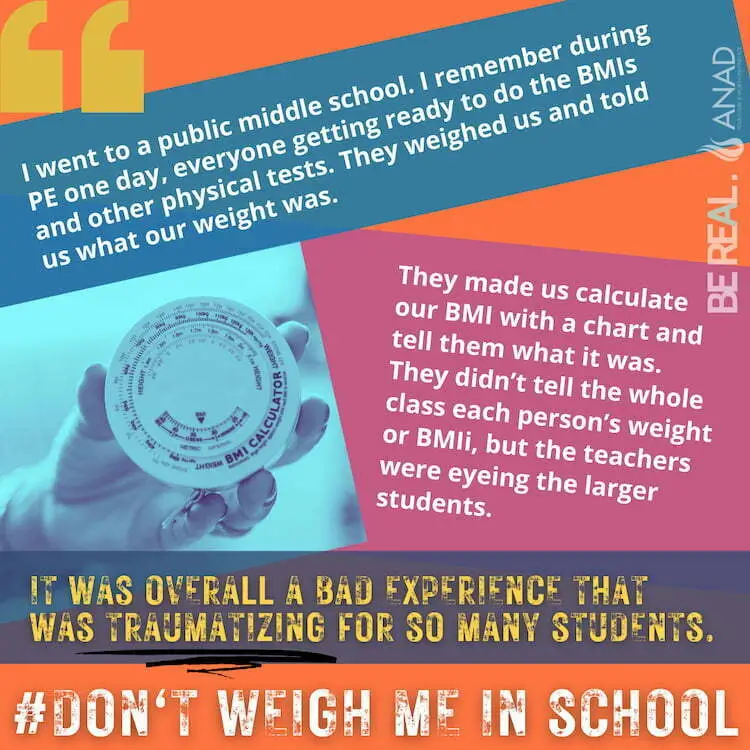Don’t
Weigh Me
In School Campaign
Forty percent of US children live in states where schools send BMI reports to parents (Thompson & Madsen, 2017). Millions of US children have been weighed in schools over the years due to School BMI Screening policies. Decades after these weigh-ins began, research has proved School BMI Screenings to be a failed policy. The screenings have yielded no positive child health outcomes on a population level or on an individual level. Instead, these screenings have actually proven harmful to students’ mental health (Thompson & Madsen, 2017).
What You Should Know
A 2021 study of 28,000 students in California Public Schools over 3 years found that School BMI Screenings “did not improve students’ weight status or physical health.” The screenings did, however, “decrease students’ satisfaction with their weight.” These screenings caused ‘body dissatisfaction’ which trigger a host of mental health problems (Madsen et al., 2021). No studies have found benefits to student on a population level or individual level from School BMI Screenings. After decades of measuring students’ BMI in schools—involving millions of school children—the School BMI Screening policies have proved a resounding failure.
To learn more about BMI screenings, download BE REAL’s Fact Sheet.
Explore the BMI Policies by State with this spreadsheet.
The Student Body Film
One student fights back against taking students’ private information in schools
The Student Body follows the inspiring story of a shy high school student turned brave journalist who seeks justice for her peers. In many states, lawmakers have passed controversial mandates forcing school to perform body mass index (BMI) tests on students…
Teaching Resources
To learn more about The Student Body Film & Lesson Plan, download The Student Body One-Pager.

Download the Teacher Toolkit here: The Student Body Teacher Toolkit.

Access the slide presentation here: The Student Body Google Slide Presentation.
The CDC created guidelines for School BMI Screenings to preserve student confidentiality and protect student self-esteem. Unfortunately, in practice, these safeguards have rarely been used in schools (Centers for Disease Control and Prevention (CDC), 2022).
e rarely been used in schools.
What You Can Do: OPT-OUT
Know Your Rights!
USE OUR School OPT-OUT LETTER
The CDC’s Safeguard 1 for BMI Measurements in Schools states that parents should receive a clear description of the student weigh-in program at their child’s school. Parents must be given the option of declining permission to measure their child’s BMI. Some programs use passive parental consent; that is, all students have their BMI measured unless parents send a written refusal. Here is a written refusal letter you can give to your child’s school. If you student is over 18, they can sign the letter themselves.
Click here to download a copy of the an Opt-Out letter you can use at school.
Join the Campaign
Share Your Experience
Click here to share your personal story about being weighed in school.
Contact Your Legislator
Use this script to contact your legislators by email or phone to let them know how you feel about taking students’ BMIs.
Sign the Petition
Follow this link to sign the petition to stop weighing students in school!
Personal Stories
Legislator Contact Script
Hello, my name is (name) and I’m a (grade) student/parent at (school) in (town). I am calling/writing to discuss body mass index screenings of students in schools and why I am opposed to this practice. As per state law/regulation, my school/my child’s school conducts BMI screenings of students. I believe that this is an ineffective and harmful practice.
A March 2021 study of 28,641 students in California Public Schools shows that BMI screenings do not improve students’ weight status. The screenings do, however, decrease students’ satisfaction with their weight. Additionally, by focusing on student’s body weight, BMI screenings lead to a variety of harm. The screenings promote restrictive eating, which interferes with physical hunger cues. Restrictive eating is also the most important factor in the development of an eating disorder. The screenings’ emphasis on students’ body weight is associated with increased depression, eating disorders, and weight gain over time.
The CDC recommends 10 safeguards to be followed for BMI Screening in Schools. However, a study from 2019 estimated that only 3% of schools used the 4 most important safeguards and 56% of schools had none or only one safeguard.³ Most teachers had no idea that these safeguards existed. Failing to adopt safeguards leave children without protection. Students consistently report being weighed—with weights announced—in front of their peers. There are specific parental and student opt-out protections in the guidelines consistently ignored.
Given this, I urge you to be an advocate for student’s mental and physical wellbeing and oppose this practice by repealing the law/working with Be Real USA to stop the practice of weighing kids in schools.
Thank you,
(sign)
- Kristine A. Madsen et al., “Effect of School-Based Body Mass Index Reporting in California Public Schools,” JAMA Pediatrics 175, no. 3 (January 2021): p. 251, https://doi.org/10.1001/jamapediatrics.2020.4768.
- Lynne Allison Daniels, “Feeding Practices and Parenting: A Pathway to Child Health and Family Happiness,” Annals of Nutrition and Metabolism 74, no. Suppl. 2 (2019): pp. 29-42, https://doi.org/10.1159/000499145.
- “Statistics & Research on Eating Disorders,” National Eating Disorders Association, July 14, 2021, https://www.nationaleatingdisorders.org/statistics-research-eating-disorders.
- Dianne Neumark-Sztainer et al., “Obesity, Disordered Eating, and Eating Disorders in a Longitudinal Study of Adolescents: How Do Dieters Fare 5 Years Later?,” Journal of the American Dietetic Association 106, no. 4 (2006): pp. 559-568, https://doi.org/10.1016/j.jada.2006.01.003.


